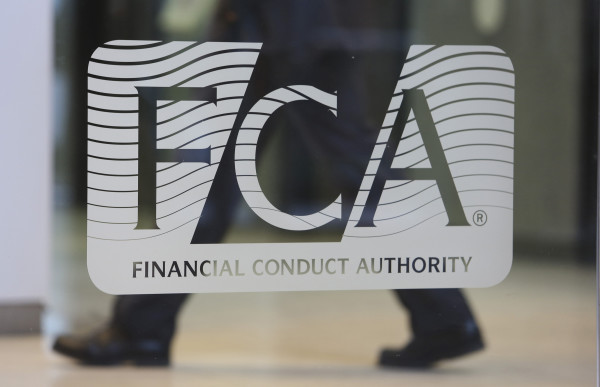

Planned rules designed to cut advisers' compensation bill by making it easier to bring financial claims against insolvent advice firms could be undermined by professional indemnity insurance clauses, experts have said.
The Financial Conduct Authority (FCA) plans to force advisers' professional indemnity insurers to allow claims against a defaulted firm's insurance.
It has concerns some professional indemnity insurers are using exclusions, such as a general insolvency clause, that mean the Financial Services Compensation Scheme (FSCS) is unable to bring a claim on the policy.
But Jonathan Corman, a partner at Fenchurch Law who specialises in insurance disputes, said such insolvency clauses are mainly used by a small group of already high-charging professional indemnity firms that target more risky advisers, businesses that would otherwise struggle to find cover at all.
He said: "It is by no means the case that this [insolvency] exclusion is universal."
However he pointed to other exemptions in advisers' policies that may yet render the FCA's rule ineffective.
Some professional indemnity insurers already include exclusions on pension transfers that seem like transfers are covered but actually "you are only covered where compliant advice was given", he said.
Similarly Julian Brincat, head of IFA practice at PI broker Protean, said unregulated collective investment schemes have become a "standard exemption" in many insurance policies.
Mr Brincat said there were two types of insolvency clauses, one excluding claims against insolvent assets, i.e. a failed fund, and one excluding claims against an insolvent advice firm.
He said the blanket asset ban, which was popular among insurers about six years ago, when Arch Cru and Keydata claims were still being made, are rare now.
But, unlike Mr Corman, he seemed to suggest policy cancellations kicking in when a firm, for instance, loses it part four permissions - permission granted by the FCA to a firm allowing it to carry on regulated activities - were widespread.
He said: "The problem is there is no one wording but most of the policies have these exclusions in place."
Mr Brincat also said the regulator may find it can not simply impose the rule on insurers.
He said the wording in the FCA paper appeared to suggest the regulator will stipulate the rules and insurers will follow - "I don't think that is going to be the case”.
Advisers are worried a strict rule from the regulator could push up premiums or make it even harder for them to find cover.
Currently, advice firms are required to maintain professional indemnity insurance that provides an adequate level of cover, so it is easy to see how a change of terms would affect them directly.
But in its consultation out on 1 May the regulator said there was no reason to be concerned, as a mere 16 per cent of personal investment firms are estimated to be affected by the impact of the proposal.
The watchdog had enquired about both of the above scenarios.
The FCA stated: "Several professional indemnity insurance providers either do not include such exclusions in policy terms and conditions, or have indicated that they would be unlikely to increase premiums.
"These firms represent nearly two-thirds of the market share of the sample we surveyed."
The FCA had spoken to 15 large professional indemnity insurers servicing about 67 per cent of the personal investment firm market and found six of those either did not have the exclusions in current policies, did not think there would be any premium increase, or were unable to provide an estimate.
One provider suggested a likely premium increase of 25 per cent, while seven others said they would likely exit the market and two said they would definitely exit.
Mr Corman, though supportive of the FCA's proposal, said the rule was only part of the solution and agreed with advisers some price hikes and market exits were to be expected as a result.
In fact, professional indemnity insurance has already claimed its first victim.
On Wednesday (2 May) pension transfer specialist O&M Pension Advice announced it had stopped trading as it was unable to find cover at "commercially acceptable" terms.
Phil Billingham, director of the firm, spoke of a "nervous PI market", which was blighted by the recent British Steel fiasco and wary of the regulator's intention to tighten up its rules.
He said: "We might see potentially unwanted consequences because simply increasing the liability on PI firms at a time when [advising] on DB transfers is already difficult is not going to make life easier for everybody else."
Ian Cornwall, director of regulation at adviser trade body Pimfa, supported the regulator's attempt to create a level playing field but warned the potential cost on firms would need to be spelled out in as much detail as possible.
He said he expected the FCA to go back to insurers with their final proposals to ensure the vast majority of big players would not either exit or make the insurance economically unviable.
The FCA should also ensure to factor in the compensation increase on investment business from £50,000 to £85,000 from next year.
He said: "We need absolute clarity from the FCA what the standard cover is and we need it to ensure the economic consequences of the proposal are as clearly assessed as possible."
The FCA said it would update its cost benefit analysis as appropriate before deciding on final rules.
Scott Gallacher, Chartered financial planner at Rowley Turton, said: "Whilst the Financial Services Compensation Scheme (funding) system clearly needed reviewing, as it cannot be right that the best firms effectively pay for the worst, I am not sure that this is the best way.
"Obtaining professional indemnity insurance cover is getting more challenging and more expensive for firms, and any attempt to force them to provide higher cover risks providers leaving the market entirely or at least pricing many good advisers out of the profession."
carmen.reichman@ft.com



